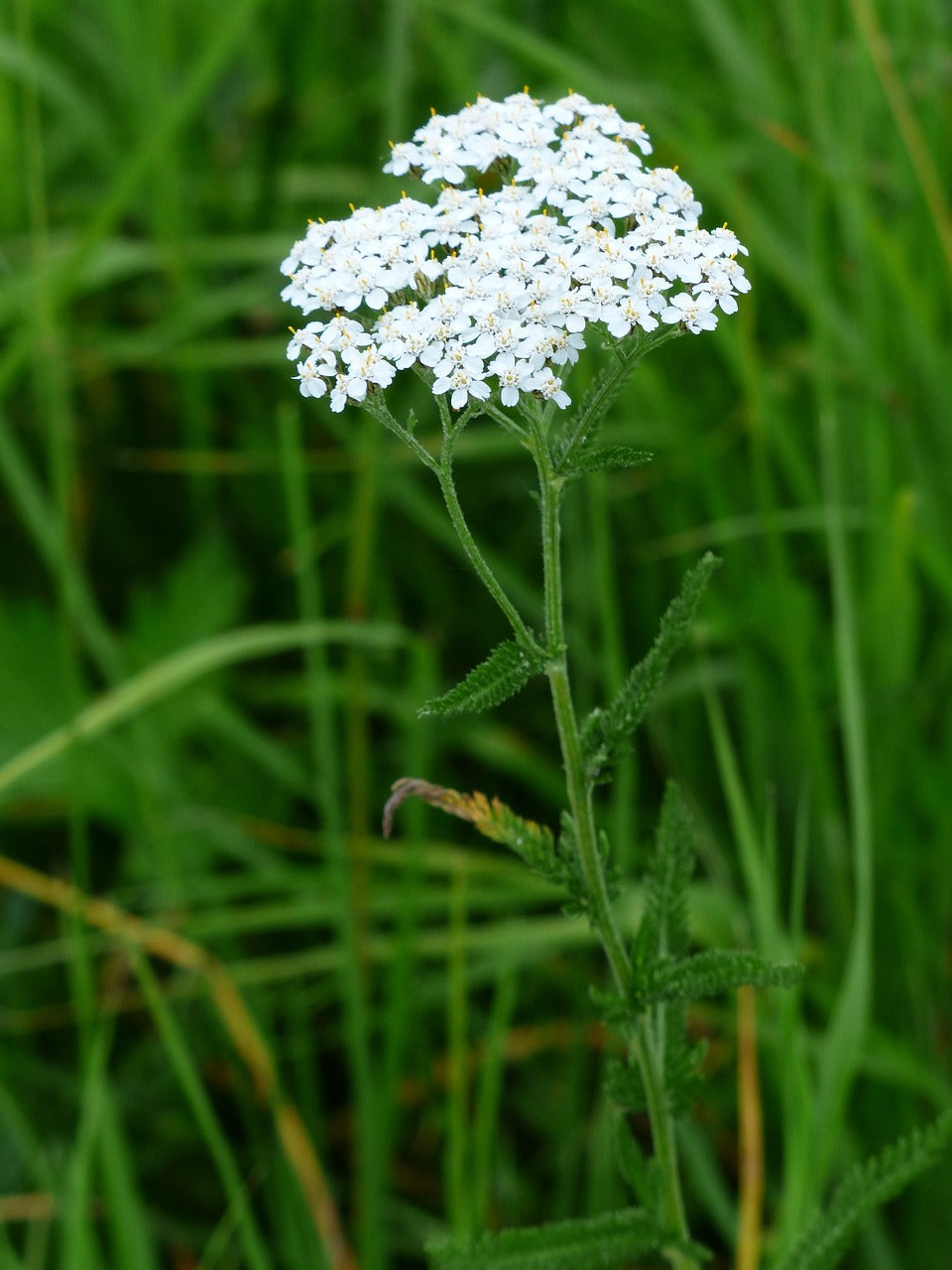
Yarrow
Herbal Action: Diaphoretic, astringent, hemostatic,stimulant
Medical Research/Uses:
Yarrow is considered both the “master of the blood” and “master of fever”. It is well known for its diaphoretic effect. This herb runs the spectrum from clotting, un-clotting, neurovascular control, flavonoids – it regulates the flow of blood to and from the surface.
A hot infusion (tea) of the dried herb or flowers helps to promote sweating by dilating the capillaries at the skin’s surface. The continued use of a warm infusion arouses capillary action on the skin, securing slow perspiration, and elevating the temperature, opening and softening the skin. This helps cool the body and removes toxins. This also contributes to the circulatory action of lowering blood pressure.
Yarrow exerts a positive influence directly on the uterus and its circulation, rather than indirectly via the endocrine system. It is recommended in many women's Materia Medica books. Yarrow has such a strong indication for blood and bleeding that it is very functional as a women’s herb. It is particularly used for stagnant blood, as in amenorrhea when the blood builds up in the uterus. Maria Trebens suggests every woman drink yarrow tea once in a while during her reproductive years, as a preventative, just to clear out any stagnant blood. Essence of anise disguises its bitterness well.
Yarrow is also useful for pelvic congestion, reducing excessive flow and pain due to engorged pelvic veins. It is a uterine stimulant and antispasmodic, relieving painful and delayed menstruation. It may be used internally and as a douche for leucorrhoea and for cervical erosion.
Additional Information
Part Used: herb, root, essential oil, flower essence
